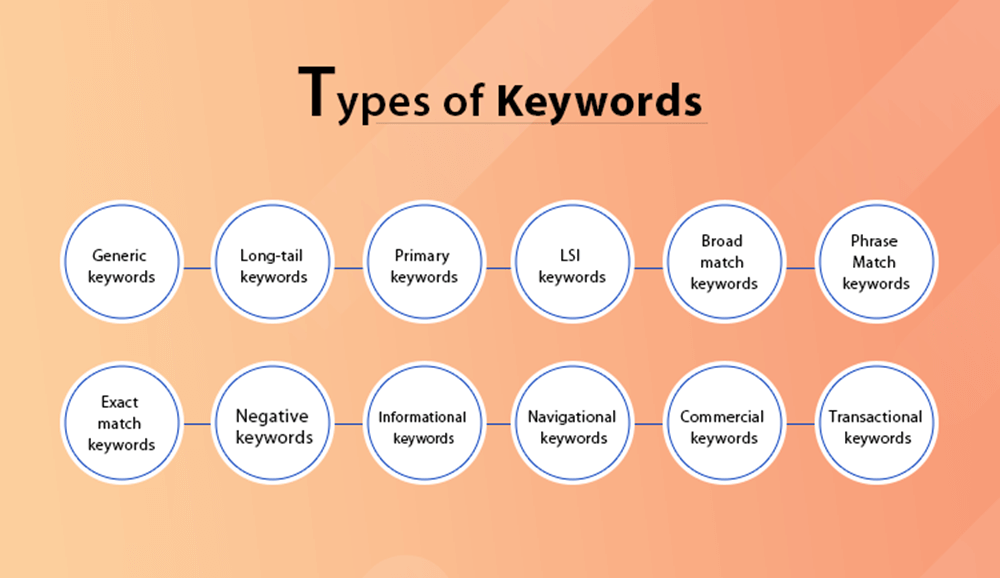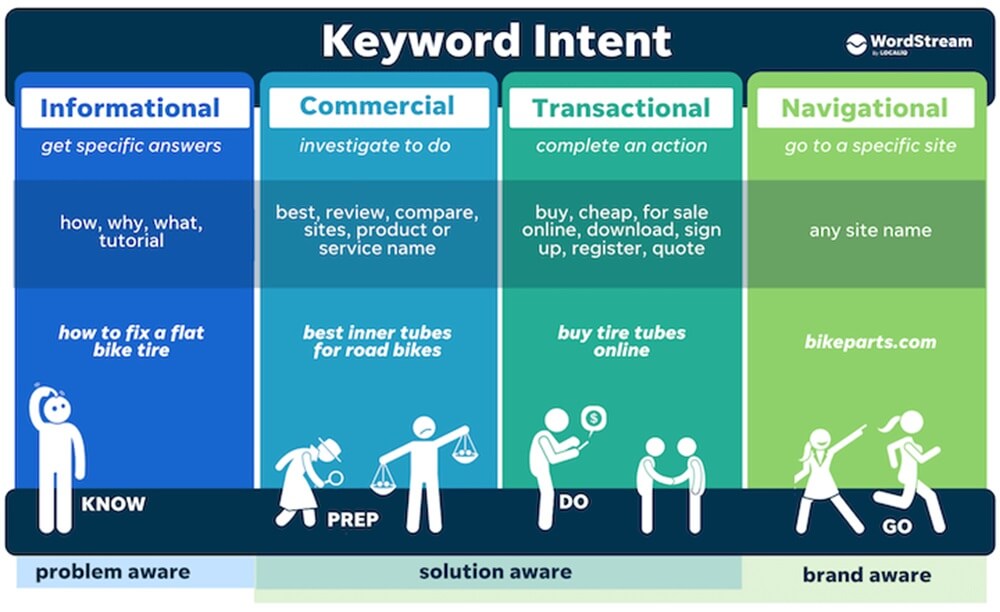When it comes to search engine optimisation (SEO), choosing the right keywords is essential. The keywords you target will determine the traffic you receive from search engines, so it’s important to choose keywords that are relevant to your website and that people are actually searching for.
But how do you know which keywords are the right ones, such as those suggested by the SEO team at a digital marketing agency? That’s where search intent comes in. Search intent is the purpose behind a user’s search query. It can be informational, navigational, or transactional.
The purpose of this blog will be to go deeper into the realm of search intent and find out how it has reshaped keyword research, ensuring that you not only attract visitors to your website but also provide them with exactly what they’re looking for.
Keywords are those specific words or phrases that encapsulate the essence of your content. They act as the bridges connecting users to your website through search engines. In the words of the SEO techniques at RepIndia, widely regarded as the most detail-oriented SEO services company, think of keywords as the compass that guides search engine crawlers to index your content in their databases.
But here’s the catch: simply stuffing your content with keywords is no longer an effective strategy.
Absolutely, but the approach has evolved. In the early days of the internet, it was all about identifying high-traffic keywords and incorporating them into your content as much as possible. This often resulted in unnatural and robotic-sounding content that did not provide value to the users. The focus has shifted from quantity to quality.
With the rise of voice search and the increasing popularity of long-tail keywords, it’s essential to do your keyword research, especially while doing multilingual SEO, to ensure that you’re targeting the right terms.
Search engines, especially Google, have undergone a transformation. They are no longer just matching keywords; they are deciphering user intent. The introduction of complex algorithms for various types of SEO, like local SEO, means that search engines are now capable of understanding the context behind a user’s query. This has paved the way for a more user-centric approach to keyword research.
In the past, people would typically type in short, single-word keywords when they did a search. But today, people are more likely to use longer, more detailed keywords. They’re also more likely to use voice search.
Keywords can be broadly categorised into three types: navigational, informational, and transactional.

Latent Semantic Indexing (LSI) is a technique that Google uses to understand the meaning of words and phrases. LSI helps Google to match search queries with relevant results, even if the keywords in the search query are not exactly the same as the keywords on the website.
LSI is widely considered by digital marketing agencies as one of the primary factors in offering digital marketing services. It helps search engines determine the relationship between words and concepts in content, allowing them to provide more accurate search results.
For instance, if you’re writing about “healthy eating,” LSI might help you include related terms like “nutrition,” “balanced diet,” and “wellness.”
Understanding user intent is pivotal to modern keyword research. Put yourself in the shoes of the user.
By delving into these questions, you can better align your content with what users are truly looking for.

Keyword intent goes beyond the surface-level understanding of what a user is searching for. Ecommerce SEO services need to pay heed to keyword intent the most since online shopping is one of the most trending areas of focus for businesses. It delves into the emotions, desires, and motivations behind the search.
For instance, if someone is searching for “best budget smartphones,” their intent is not just to find a list of phones but to make an informed purchase decision.
Crafting your content around this intent can lead to higher engagement and conversions.
Whether it is an ORM agency or an SEO services in India, keyword research is the foundation of any effective strategy. Here’s a step-by-step approach to effective keyword research in the era of search intent:
SEO services are most effective when all facets of SEO are handled efficiently, like on-page, off-page and technical SEO services. Several tools can streamline your keyword research process. Some of the top options include:
The landscape of keyword research has evolved from a focus on isolated words to a profound understanding of user intent. Today, it’s not just about getting eyes on your content; it’s about providing genuine value to your audience.
By grasping the nuances of search intent and incorporating them into your keyword strategy, you can forge deeper connections with your users, boost engagement, and achieve your digital marketing goals.
If you are searching for an agency that can catch the pulse of your target audience with the right keywords, RepIndia is just a call away. As an experienced digital marketing agency, we can suggest just the right strategy for your business.
So, target the right customers with search intent-based keywords and make more conversions happen!
Also Read: The Future of SEO with AI: Preparing for the Changes Ahead
Write a Message